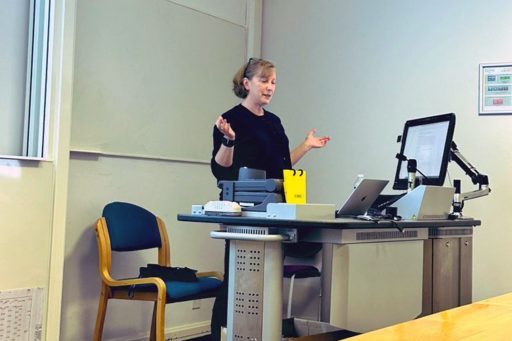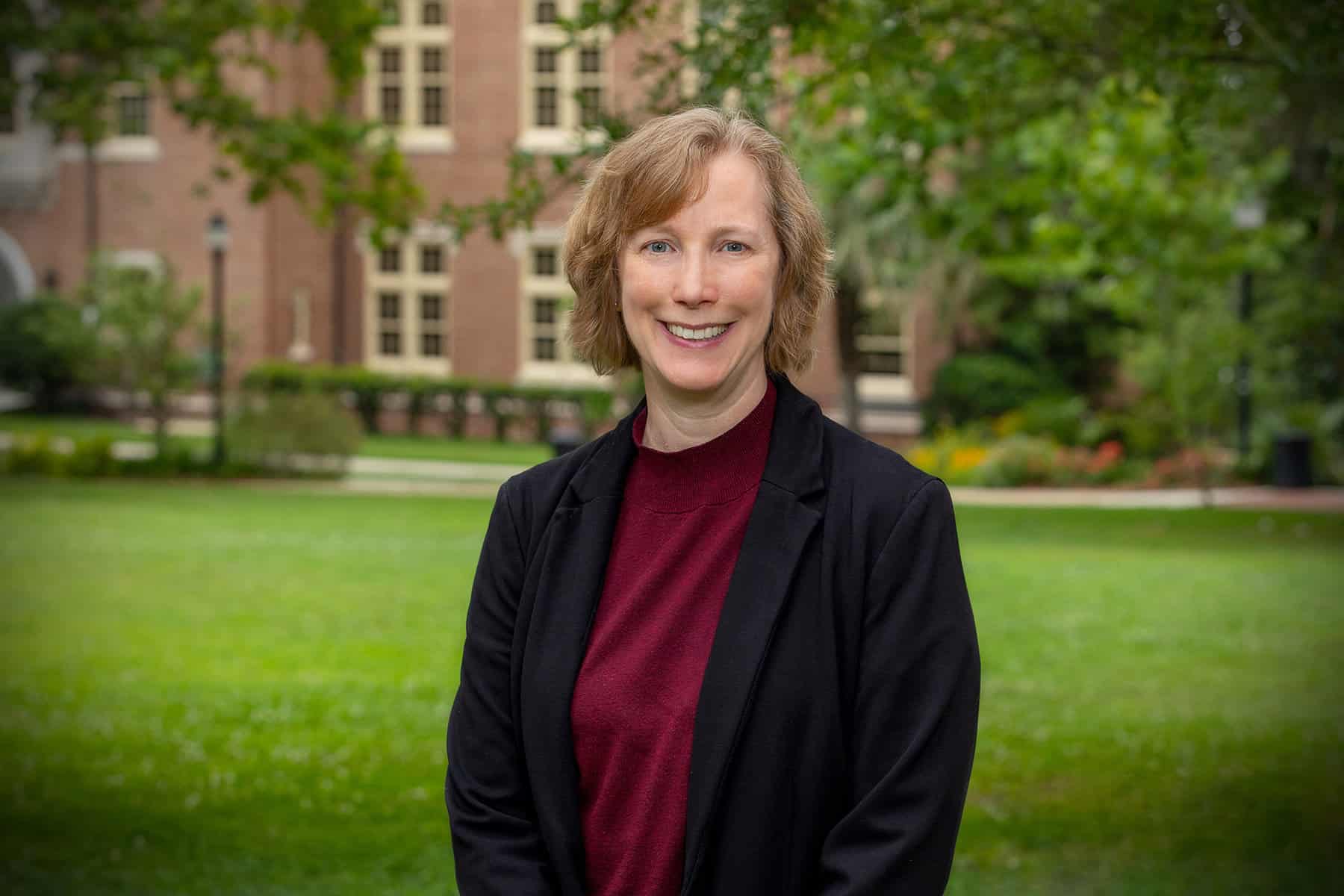In September, Dr. Michelle Kazmer, Dean of the College of Communication and Information, became the first American to give a keynote speech at the Agatha Christie and Golden Age of Crime International Conference in Exeter, U.K.
Kazmer–a lifelong Agatha Christie fan–shared, “Since 2014, I have attended and presented at this conference regularly, and it has always been an invigorating and welcoming intellectual experience. But being asked to offer a keynote at the 2023 conference– the first American keynote speaker and the first keynote speaker without a UK university affiliation– was beyond compare. I was awed and honored.”
The Agatha Christie and Golden Age of Crime Conference gathers over twenty insightful papers every year to spark new conversations about Christie’s work. The original conception of J.C. Bernthal, the ongoing conference is co-organized by Bernthal along with Sarah Martin, Mia Dormer, and Stefano Serafini. The event was particularly special this year as 2023 marks fifty years since Agatha Christie, also known as the Queen of Crime, wrote her final published novel.
 At the conference, Kazmer’s presentation, “Somerset House, Selfridges, and the Castanets of Bronze: Information Systems in the Works of Agatha Christie,” addressed the various information systems present throughout Christie’s works. She explained that computers have only been the primary information system for a short period of time and many other systems such as telephone, the post, the press, and railway guides existed long before the computer was even invented. In her keynote, Kazmer discussed a range of Christie’s works from the 1920s to the 1970s and analyzed the different information systems present in them such as Selfridges Information Bureau, the telegraph system, and Somerset House, the home of the General Register Office, which stored records of births, deaths, and marriages.
At the conference, Kazmer’s presentation, “Somerset House, Selfridges, and the Castanets of Bronze: Information Systems in the Works of Agatha Christie,” addressed the various information systems present throughout Christie’s works. She explained that computers have only been the primary information system for a short period of time and many other systems such as telephone, the post, the press, and railway guides existed long before the computer was even invented. In her keynote, Kazmer discussed a range of Christie’s works from the 1920s to the 1970s and analyzed the different information systems present in them such as Selfridges Information Bureau, the telegraph system, and Somerset House, the home of the General Register Office, which stored records of births, deaths, and marriages.
Looking back at the conference, Kazmer shared, “We haven’t even scratched the surface of what we can learn from the works of Agatha Christie and their adaptations. This year’s conference included many new scholars who have not attended before, and several research perspectives that have not been addressed in depth at the conference before, including approaches from linguistics, law, and archaeology. Every time we get together, we learn and discover new things.”


